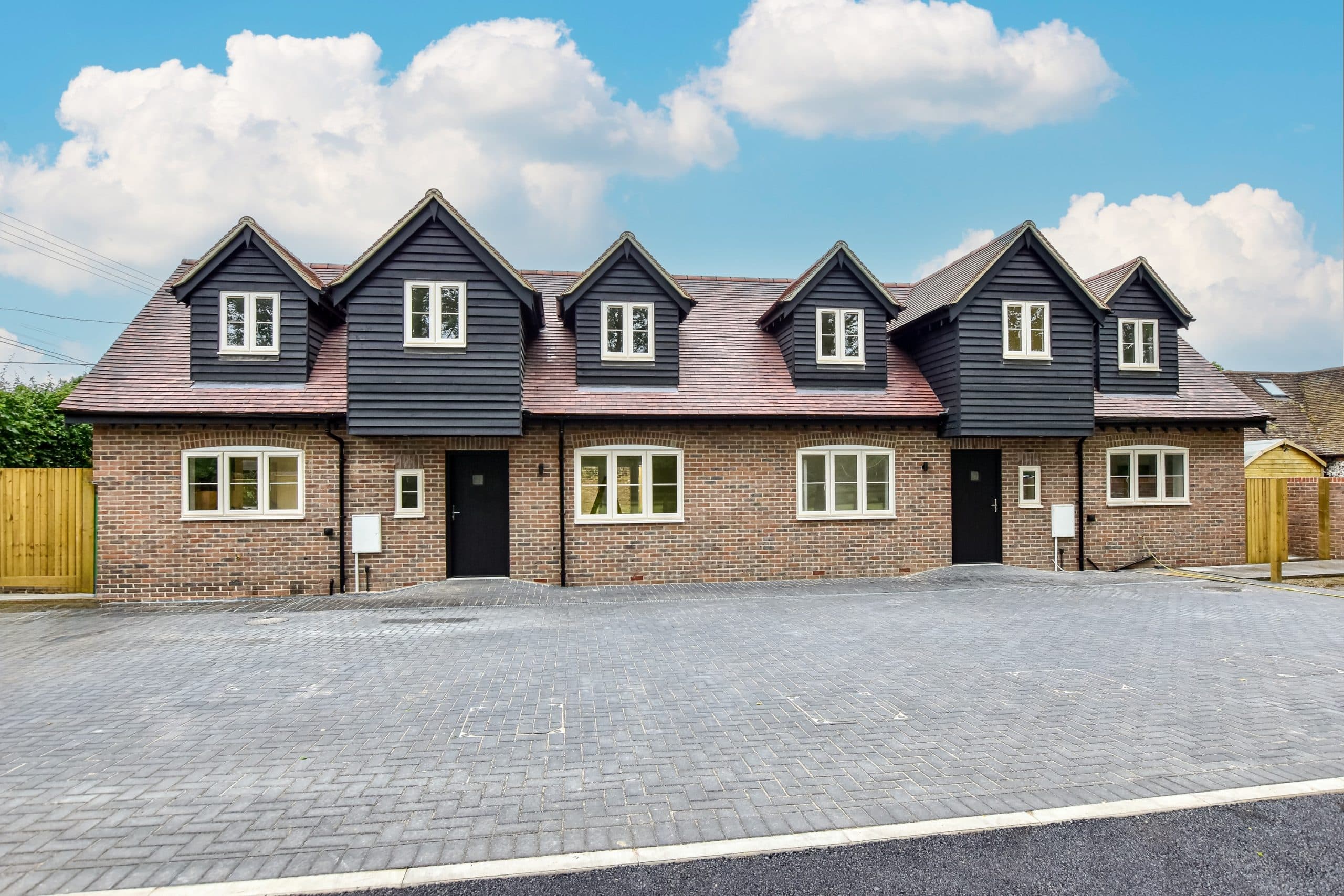Residential development finance can be a vital string in your bow for getting your development project over the line. We’ve already covered the process of getting development finance, but in this guide, we’re going to cover everything you need to know about residential development finance, as there are some slight differences.
If you’re looking at private development finance for a residential project, read on!
How does development finance work?
Property development finance is a short-term funding solution that typically lasts between 12 and 36 months, although 12-18 is the most common. The main function of private development finance is to help with buying and developing a project such as a new build house, a property conversion (such as a barn or former commercial unit), an extension, or multiple dwellings such as a block of flats. It can also be used across multiple phases of a project to manage cash flow and balance repayments. For example, the initial funds can be used to purchase the land, and then more instalments of funds can be released to finance different stages of the build.
Unlike a traditional mortgage, where the lender takes the value of the property as well as the borrower’s income and finances into account, private development finance is based on the projected value of the property when complete. For some, it can be the best way to finance a property development project.
In order to successfully apply for a residential property development loan, lenders will often need to see the following:
- The costs of purchasing the land (if required)
- The projected costs of construction, including legal and professional fees
- A detailed project plan with timescales
- The projected value of the property once complete
- An exit plan – i.e. how you’re going to repay the loan
The lender will then provide a list of terms, based on this information, that needs to be agreed to before proceeding to a full application. Generally, the loan is repaid through the sale of the property, and this makes it a great option for developers.
What types of residential development finance exist?
There are several options out there for residential property developers seeking finance, and each comes with pros and cons. Let’s explore them further.
Home Renovation Loans
If you’re developing your own property (such as with an extension) and intend to continue living there afterwards, then further refinancing will need to be arranged. In this instance, a home renovation loan from a traditional bank may be a better, long-term option due to lower interest rates and ease of application.
Property Development Loan
If you’re a property developer, then development finance or bridging loans (more on that later) are most popular for property renovations, refurbishments, and developments that will be sold upon completion. These provide short-term finance, often at scale, with higher interest rates. A property development loan is used to fund the whole project and can include funding for the land itself. These loans come with higher interest rates but the short-term nature of them means they can be a fantastic financing option. Once the property is sold, the full loan is repaid.
For more information, refer to our guide on Renovating a Property with Development Finance.
Bridging Loan
A bridging loan is a type of property development loan that is used to ‘bridge’ or fill a funding gap. These are applied for, granted and repaid in the same way as other development loans but are intended primarily to help with short-term cash flow problems. For example, you may need access to funds to prevent a project from failing before you have access to your primary funding. Sometimes this is another loan, but a common reason for getting a bridging loan is that you are in the process of selling another property, the money from which will fund your current project.
For more information, refer to our guide on Bridging Loans, as well as some Bridging Loan Alternatives.
Equity Financing
Equity financing is a different option for shorter-term projects. In this case, the lender effectively buys an equity, or share, of your property. They provide a cash injection, and instead of charging interest, they take their share of the profit when the property is sold. Typically, equity financing is only granted to property developers who have a very strong, proven track record of delivering profitable development projects on time, and to budget.
Although not essential, many lenders of equity financing will have developed strong business relationships with the developer and have built a high level of mutual trust. It is also important to note that if the building is intended for owner occupation, then it will be subject to FCA regulation. However, if it is to be sold upon completion, this won’t apply.
For more information, refer to our Equity Financing Guide.
Development Finance: Pros & Cons
We’ve already covered the pros and cons of development loans in-depth, but at a top level, let’s run through them:
Pros
- Access to large amounts of funding.
- Speed of application & receipt of funds.
- Loan secured against the poverty value rather than personal income.
- Often no monthly repayments. The loan is paid back in full at the end.
Cons
- Development finance can be complex.
- Higher fees.
- Higher interest rates.
- Delays or unexpected declines in property values could leave you liable for large repayments.
What’s the Process for Development Finance?
The process itself for applying for development finance is relatively straightforward, although due to the short-term nature of the loans, the application can sometimes be complex. Rest assured, we’ll be able to guide you through it all.
- Fill out an application form on our website. We’ll need to know some basics such as a project outline and timelines, predicted costs, completed value, and the loan amount required.
- With this, we’ll be able to offer you an ‘Offer in Principle’. This sets out the T&Cs of the loan and there are no credit checks involved.
- If this is agreed, we’ll instruct our surveyor to commence a desktop study and then undertake a site visit to determine the project’s viability.
- Once the surveyor’s report has been reviewed and all is agreed, we’ll instruct our legal team to go through searches to assess whether the title is clean and marketable, and confirm that our 1st charge is secure.
- We’ll then produce our ‘Facility Document’ which outlines all the terms and conditions for the borrower to sign.
- Once signed, our solicitor will transfer the funding to your legal team who will release it to you. As the loan is now live, any subsequent drawdowns will be sent directly to you.
At Hunter Finance, we have a proven track record of providing property development loans for many satisfied clients across the South East. To discuss your development finance options for your upcoming project, don’t hesitate to contact us!






